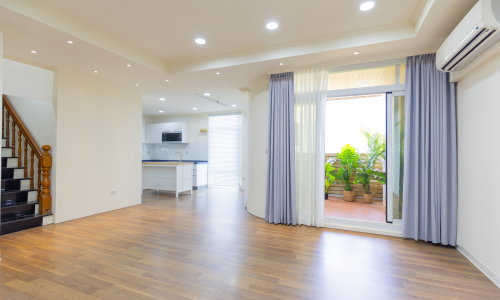
When buyers start looking for a new home, they often want to envision themselves moving in with minimal hassle. A “move-in ready” home offers a sense of ease and comfort, making the process of settling in feel effortless. Here’s what buyers typically expect from a home that feels truly ready for them to move in.
Fresh and neutral décor:
One of the most important factors for buyers is a home with fresh, neutral colours on the walls. Neutral tones like whites, greys, and soft beiges allow buyers to imagine their own furniture and style in the space. A clean, updated interior that doesn’t require immediate painting or redecoration is key to making a home feel move-in ready.
Updated fixtures and appliances:
Buyers are often drawn to homes with modern, updated kitchens and bathrooms. New or well-maintained appliances, such as refrigerators, ovens, dishwashers, and washing machines, provide peace of mind that they won’t need to replace essential items right away. Similarly, new light fixtures and faucets create an immediate sense of cleanliness and upkeep.
Clean and well-maintained spaces:
A home that’s been thoroughly cleaned and well-maintained will make a strong first impression. Buyers should be able to walk into the home and feel like it’s ready for them to unpack their belongings. This includes everything from vacuumed carpets and spotless windows to decluttered countertops and tidy closets.
Functional layout:
A home with a functional and spacious layout that suits modern living is another key feature buyers look for. Spaces that are easy to navigate and offer practical storage solutions – such as ample closet space and organised kitchens – are highly desirable. Buyers will want to envision themselves living comfortably in the space, without needing to make significant changes.
A well-cared-for exterior:
The exterior of the home should be equally inviting. A well-maintained lawn, fresh paint on the front door, and clean gutters can go a long way in making a home feel move-in ready. Curb appeal is important for creating a positive first impression and showing that the home has been cared for. In conclusion, a “move-in ready” home is one that allows buyers to feel at ease, knowing they won’t have to make major repairs or updates. By focusing on cleanliness, modern finishes, and a welcoming atmosphere, sellers can make their home more appealing to potential buyers. Ready to sell your home? Get in touch with us today to learn how to make your property truly move-in ready for the right buyer.
In conclusion, while cities will always hold an important place in the housing market, it’s clear that a shift is happening. The future of city living may not be about abandoning urban life altogether, but about reimagining what it means to live in a city—where the balance between work, home, and lifestyle is reconsidered. For now, the shift towards more peaceful, spacious areas seems set to continue.